Why Choosing Local Heating and Air Repair Services is Important
Choosing a local heating and air repair service can make a significant difference in both the quality and convenience of your HVAC service. While national chains and large companies might offer broad coverage, there are many reasons why hiring a local professional is beneficial. Local HVAC companies are often more personalized, responsive, and familiar with the specific needs of the local climate.
Local businesses are more likely to have a strong understanding of the challenges your area faces regarding heating and air systems, from humidity to extreme heat or cold. Their experience with these conditions allows them to provide tailored solutions that ensure your HVAC system operates efficiently.
Benefits of Hiring Nearby HVAC Professionals
-
Quick Response Times: Local heating and air repair services are just around the corner, meaning you won’t have to wait days for someone to respond to your call. Whether it’s a sudden air conditioning breakdown during the summer heat or a heating failure in winter, a nearby professional can get to your home much faster than a distant company.
-
Familiarity with Local Building Codes: A local HVAC technician is well-versed in the building codes and regulations specific to your area. This ensures that your heating and air repairs are compliant with local standards, reducing the risk of errors or delays due to code violations.
-
Personalized Service: Small, local HVAC companies take pride in offering a more personalized experience for their customers. You’re not just another ticket in the system—local professionals aim to build lasting relationships, ensuring you receive the best possible service, every time.
-
Supporting the Local Economy: When you hire a local HVAC company, you are investing back into the local economy. Local businesses contribute to job creation and community development, which in turn benefits the overall well-being of the area.
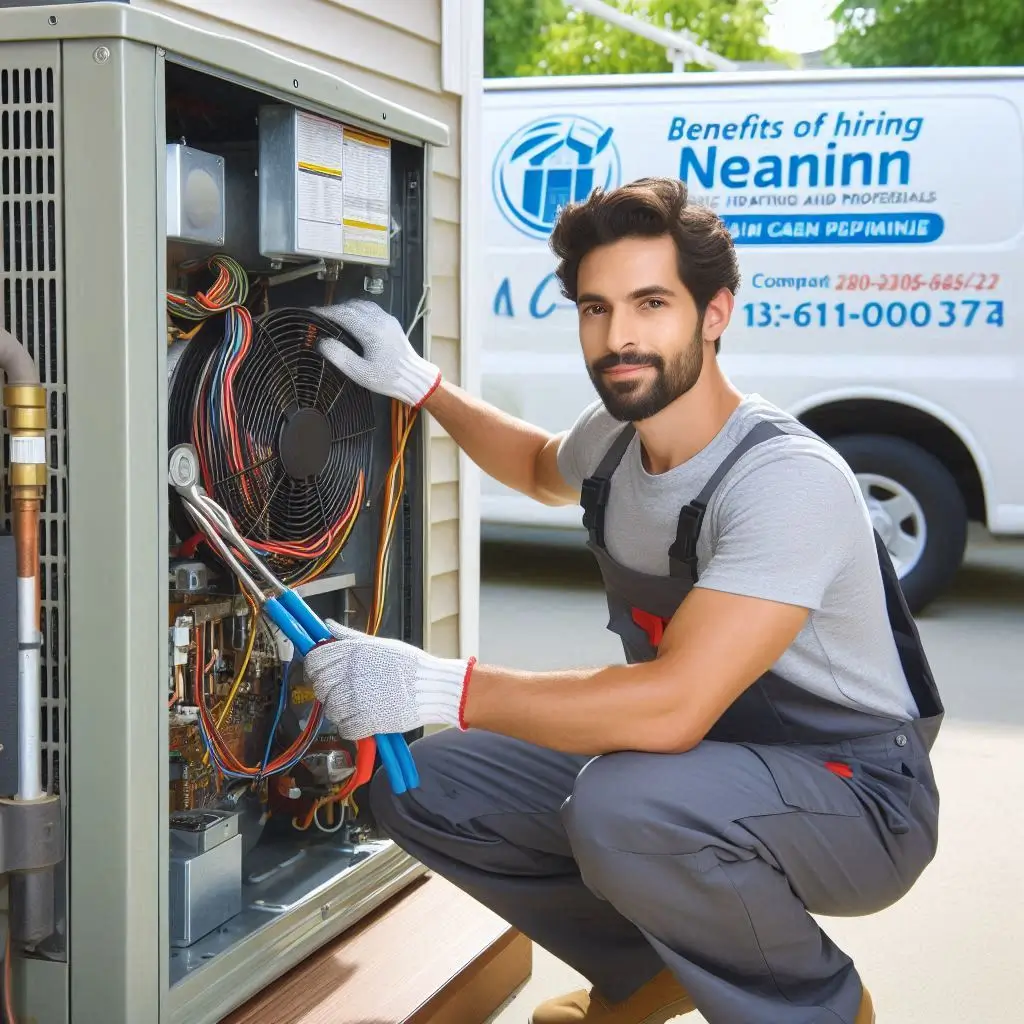
Local Knowledge for Better Heating and Air Solutions
Local HVAC technicians have firsthand experience with the region’s unique heating and air requirements. Whether it’s handling cooling systems during long Florida summers or ensuring heating systems are prepared for colder months, their local knowledge equips them to make the most accurate diagnosis and offer effective solutions.
-
Understanding Local Weather Patterns: Every region has unique weather patterns that impact HVAC systems differently. Local professionals are familiar with how seasonal shifts, humidity levels, and temperature extremes can affect your heating and cooling needs. For example, in areas with high humidity, mold and mildew buildup in HVAC systems can be a common issue. Local experts know how to prevent and address these challenges.
-
Optimized System Efficiency: Local professionals can recommend energy-efficient heating and air systems that are better suited to the specific needs of your area. They can also offer tips for system maintenance that directly address issues your system might face due to the local climate.
-
Familiarity with Area-Specific Brands: Many regions have preferred HVAC brands or models that local technicians are more experienced with. This familiarity leads to faster repairs and more accurate replacements when necessary, ensuring your system runs smoothly year-round.
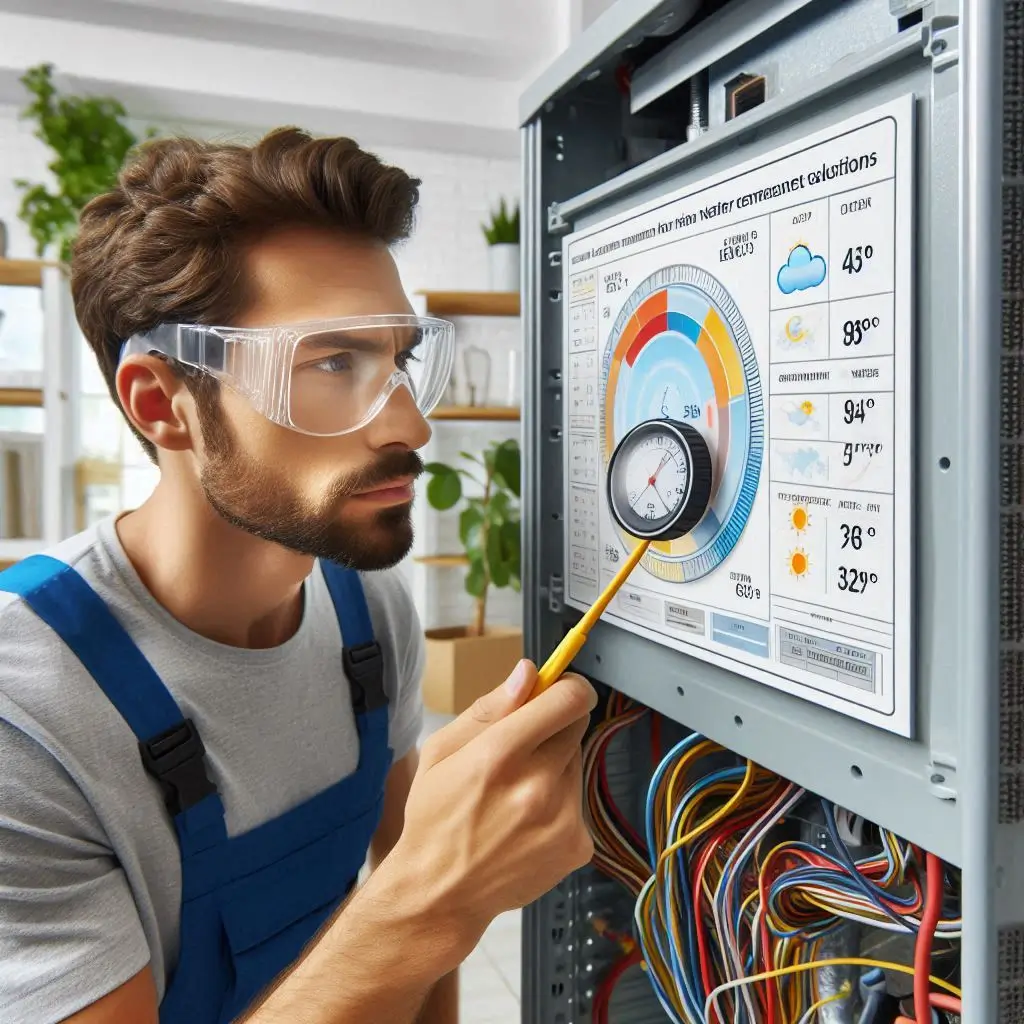
Common Heating and Air Repair Issues in Your Area
Heating and air repair issues are a common concern for homeowners, especially in regions with extreme seasonal shifts. In Florida, the warm, humid climate presents unique challenges for HVAC systems, often resulting in common repair issues. By understanding these issues, homeowners can take preventative measures, reduce repair costs, and ensure their heating and cooling systems work efficiently year-round.
How Climate Impacts HVAC Systems in Florida
Florida’s tropical climate plays a significant role in how heating and air systems perform. With hot, humid summers and mild winters, HVAC systems are under constant stress, leading to more frequent repairs. Here’s how the climate impacts HVAC systems and contributes to common issues:
-
High Humidity and Mold Growth: Florida’s high humidity levels can lead to the accumulation of moisture in your HVAC system, creating the perfect environment for mold and mildew growth. This can clog filters, reduce air quality, and strain your system. Mold growth in the air ducts is a common problem, and over time, it can cause unpleasant odors and health concerns.
-
Overworked Air Conditioners: Due to the long, hot summers, Florida homeowners rely heavily on their air conditioning systems for comfort. Overuse of the AC can lead to wear and tear on various components, such as the compressor, condenser, and evaporator coils. When these parts become worn out, it can lead to reduced efficiency and expensive repairs or replacements.
-
Refrigerant Leaks: The intense heat in Florida can cause refrigerant leaks in air conditioning units. When this happens, the system struggles to cool the air effectively, leading to higher energy bills and potential system breakdowns. It’s essential to check for leaks regularly to maintain system efficiency and avoid costly repairs.
-
Corrosion from Saltwater and Coastal Air: For homes closer to the coast, the salty air can accelerate the corrosion of HVAC components, especially the condenser coils. Salt in the air can cause damage to metal parts, leading to rust and system failure if not maintained properly. Regular inspections can help mitigate the damage caused by the salty coastal air.
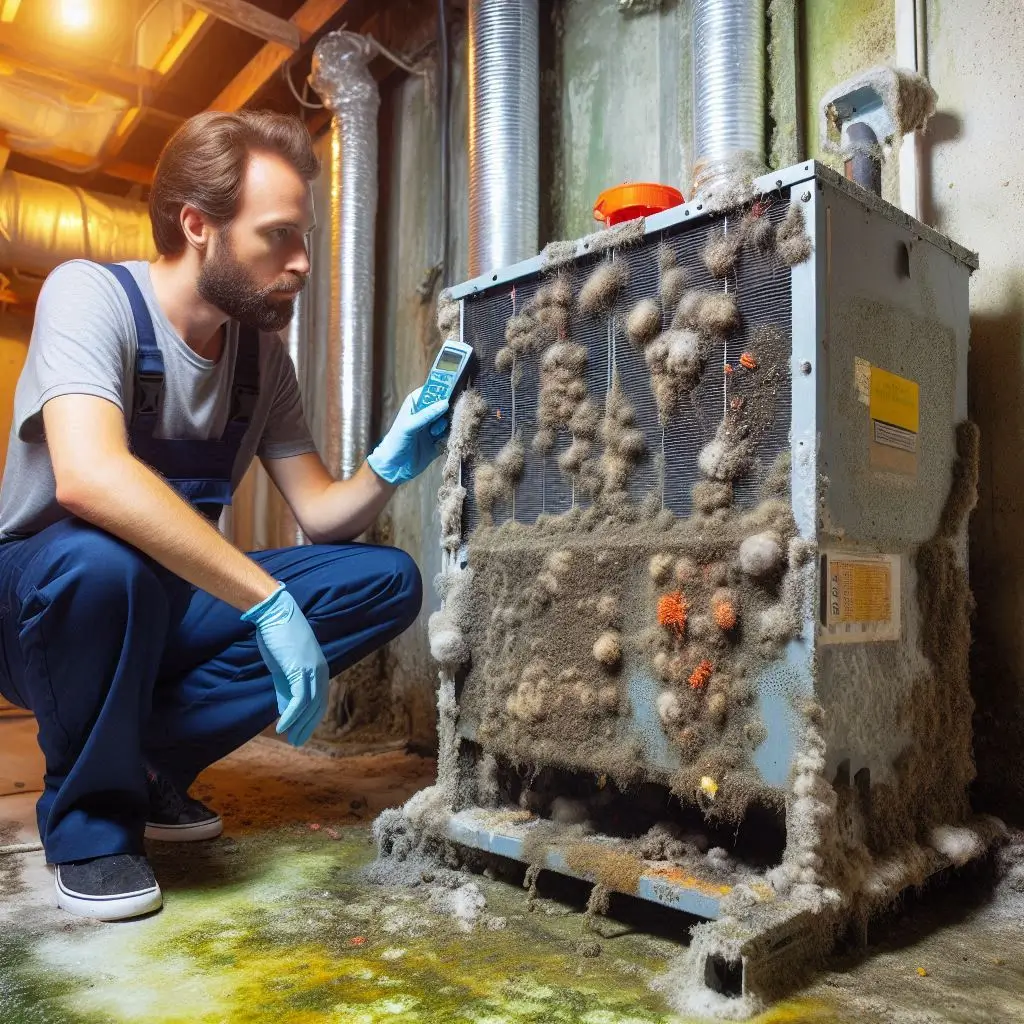
Identifying Common Heating and Air Problems Locally
Understanding the common issues faced by homeowners in Florida can help you identify potential problems early and prevent costly repairs. Here are some common heating and air issues you might encounter:
-
Inefficient Cooling or Heating: One of the most common problems in HVAC systems in Florida is inefficient heating and cooling. This can be caused by a variety of factors, such as a dirty air filter, low refrigerant levels, or a malfunctioning thermostat. If you notice that your home isn’t reaching the desired temperature, it’s essential to have your HVAC system inspected and repaired promptly.
-
Noisy HVAC Systems: If your HVAC unit is making strange noises, such as rattling, buzzing, or grinding, it’s a sign that something may be wrong. This could indicate issues with the fan, motor, or other components. Strange noises should not be ignored, as they can lead to bigger problems if left unaddressed.
-
Frozen Coils: Florida’s high humidity can lead to moisture buildup, which can freeze your AC coils. Frozen coils restrict airflow, causing your system to work harder than necessary. If your AC is blowing warm air, it could be a sign that your coils are frozen and need immediate attention.
-
Clogged Drain Line: With the high humidity in Florida, HVAC systems often collect excess moisture that needs to be drained away. If the drain line becomes clogged, water can back up into the system, leading to water damage, mold, and potentially system failure. Regular maintenance to clear the drain line is essential for keeping your system running smoothly.
-
Short-Cycling: Short-cycling occurs when your HVAC system turns on and off frequently, without reaching the desired temperature. This could be caused by an oversized system, dirty air filters, or a malfunctioning thermostat. Short-cycling not only wastes energy but can also lead to premature system failure.
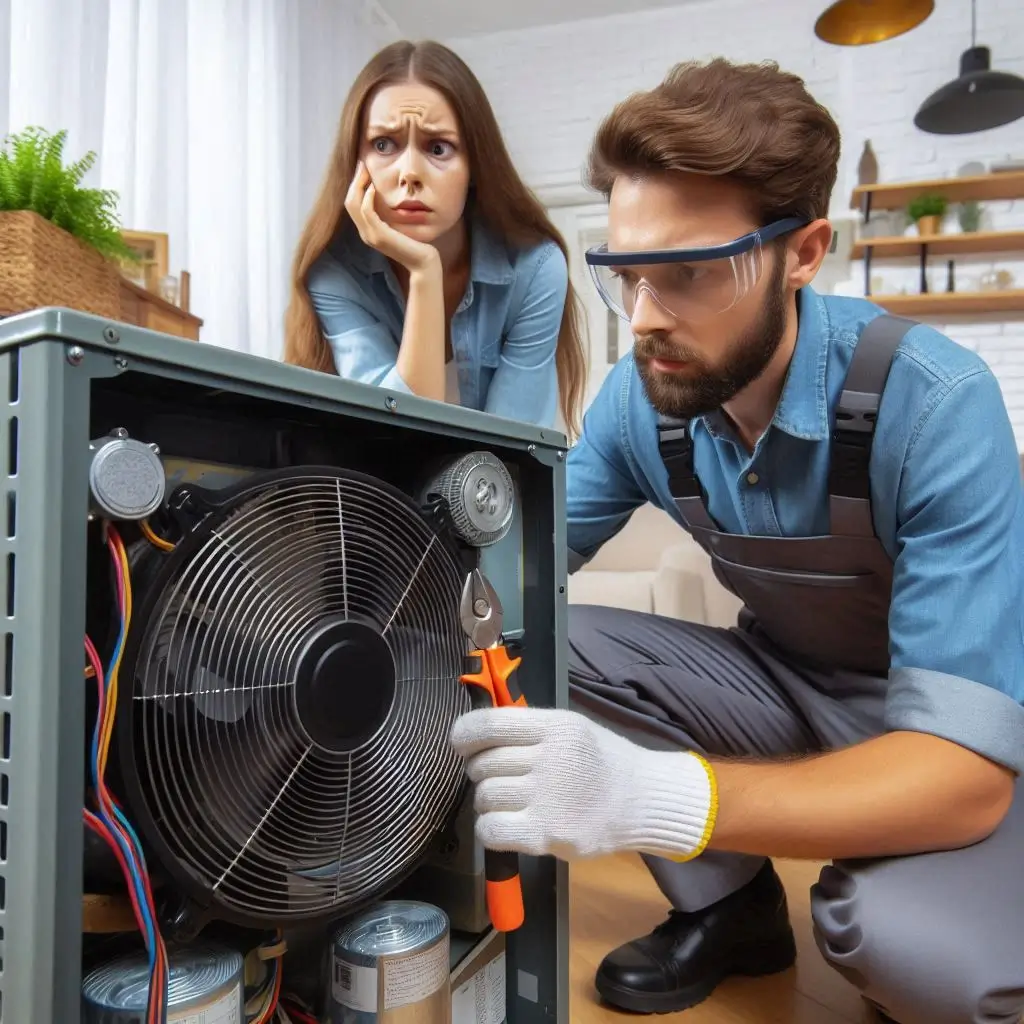
Top Factors to Consider When Searching for Heating and Air Repair Near Me
When your HVAC system breaks down, it’s important to hire a reliable and skilled professional to restore comfort to your home. With so many options available, it can be overwhelming to choose the right service provider. Whether you need an emergency repair or regular maintenance, considering several factors can help you find a trustworthy heating and air repair service near you. These factors can ensure you get the best value, top-notch service, and long-term reliability.
Licensing and Certifications for Reliable Repairs
One of the most crucial factors to consider when hiring a heating and air repair service is whether the company is properly licensed and certified. HVAC technicians must meet specific standards set by industry associations and government bodies to ensure they are qualified to work on your system. Hiring a licensed technician is essential for your peace of mind and the safety of your home.
-
Proper Licensing: All reputable HVAC service providers should be licensed by the state or local governing body. A valid license demonstrates that the company has met the required educational and training standards and is authorized to perform HVAC services in your area. Always ask to see proof of licensing before hiring a technician.
-
Certifications: In addition to licensing, look for certifications from respected organizations, such as the North American Technician Excellence (NATE) certification. This certification indicates that the technician has passed rigorous exams and has up-to-date knowledge of HVAC systems and repair techniques. It ensures that the technician is well-equipped to handle your system efficiently.
-
Bonding and Insurance: A fully licensed and certified HVAC company should also be bonded and insured. This protects both you and the company in case of damage to your property or any accidents during the repair process. Ensure the company carries the proper liability insurance before you agree to work with them.
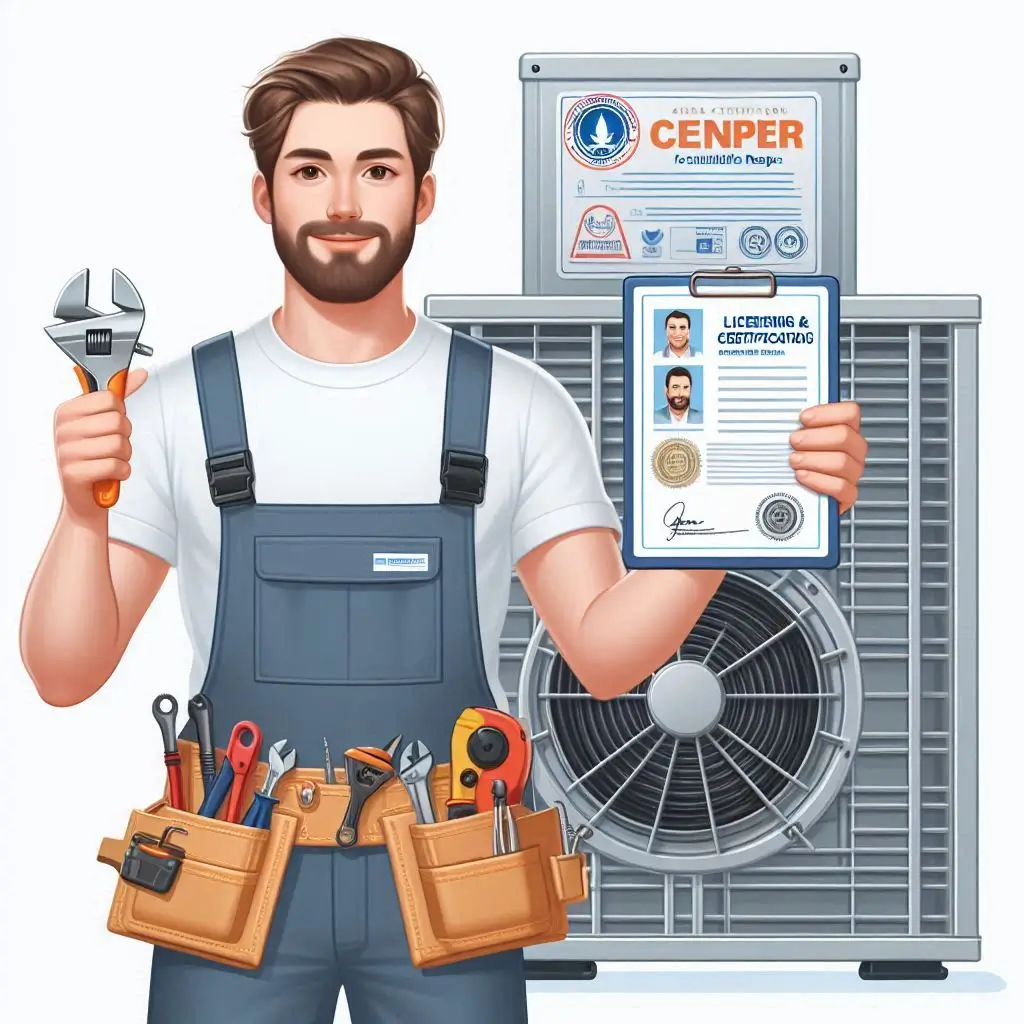
Emergency Services and Availability
Heating and air systems often fail at the most inconvenient times, such as in the middle of a heatwave or during the winter months when you rely on your heater. That’s why emergency services and availability are essential when searching for heating and air repair near you. A trustworthy HVAC company should offer reliable emergency services to ensure that your system is quickly repaired, minimizing downtime and inconvenience.
-
24/7 Emergency Availability: HVAC problems don’t always happen during regular business hours. When your air conditioner breaks down in the middle of the night or your heater fails on a holiday, you need a company that can respond quickly. Look for HVAC companies that offer 24/7 emergency services, ensuring they can get to you whenever you need help.
-
Quick Response Time: A reliable HVAC company should have a fast response time to address emergency repairs. When selecting a service provider, consider how quickly they can dispatch a technician to your home. The sooner the technician arrives, the faster they can diagnose the issue and get your system back up and running.
-
Transparency in Pricing: When dealing with emergency repairs, you want to be sure you’re getting a fair price. A professional HVAC company should be transparent about their pricing, offering estimates upfront for any emergency services. Avoid companies that are vague about costs or surprise you with hidden fees later.
-
Regular Maintenance and Preventative Services: To avoid unexpected breakdowns and emergency repairs, look for a company that offers regular maintenance services. Many HVAC companies offer maintenance packages that help prevent major issues before they arise, ultimately saving you money and reducing the likelihood of emergency repairs.
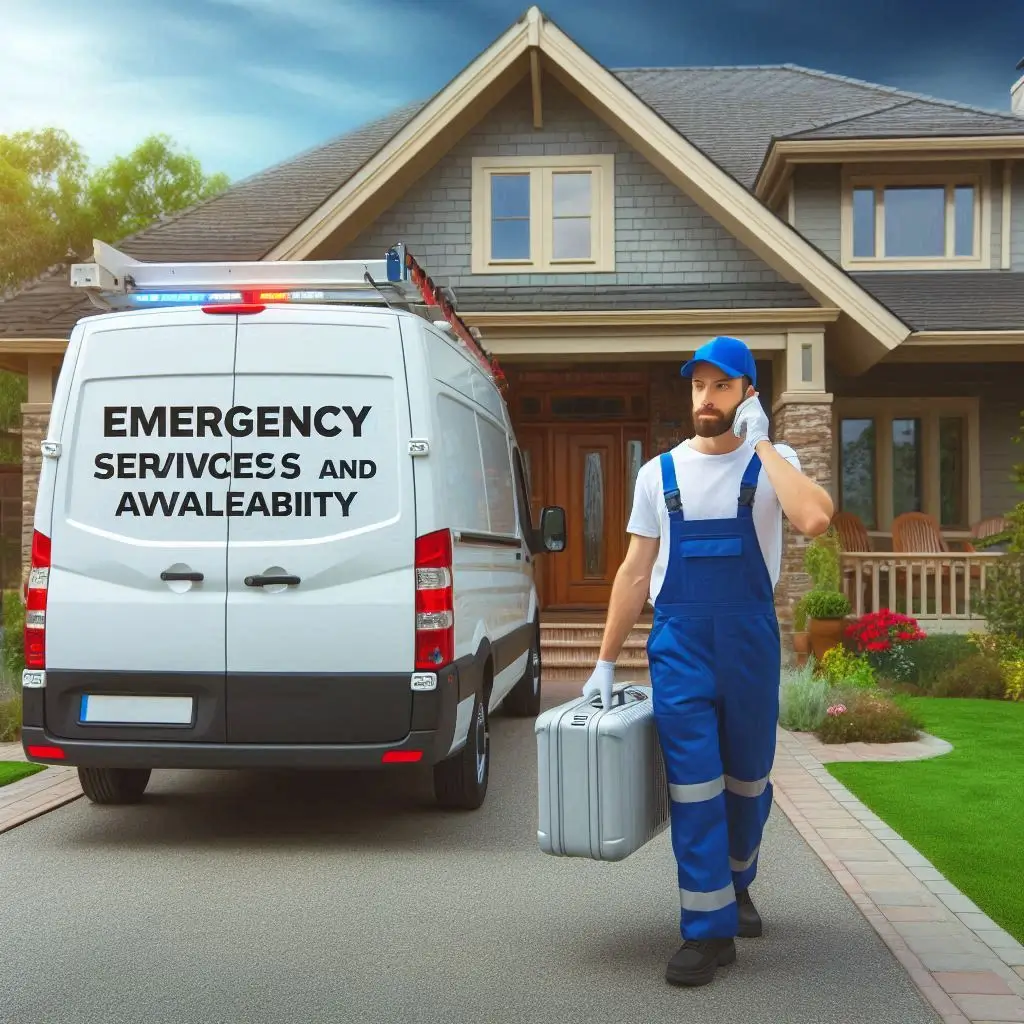
Why Regular Heating and Air Maintenance is Essential
Regular heating and air maintenance is crucial for keeping your HVAC system running efficiently and reliably throughout the year. A well-maintained system not only improves comfort in your home but also saves you money by preventing costly repairs and extending the lifespan of your equipment. In Florida, where HVAC systems are used extensively due to the hot and humid climate, regular maintenance is particularly essential for ensuring your system works effectively when you need it most.
Preventative Care to Avoid Costly Repairs
Routine maintenance is a key factor in preventing the need for expensive HVAC repairs. By having your system serviced regularly, you can catch potential problems early, before they become major issues. Preventative care reduces the likelihood of unexpected breakdowns and helps keep your system running smoothly.
-
Catch Small Issues Before They Escalate: Many HVAC problems start small but can quickly escalate into major, expensive repairs if left unaddressed. For example, a small refrigerant leak, if not detected during maintenance, can lead to a system failure. Regular maintenance allows technicians to identify and fix minor issues before they require costly repairs or replacements.
-
Dirty Filters and Clogged Coils: One of the most common maintenance issues is dirty air filters, which can lead to reduced airflow and system inefficiency. Regularly replacing or cleaning air filters during maintenance can ensure your system operates at peak efficiency. Additionally, cleaning the evaporator and condenser coils helps maintain proper airflow, reducing strain on the system and preventing major breakdowns.
-
Energy Efficiency: An HVAC system that isn’t properly maintained is forced to work harder to achieve the same level of comfort, leading to higher energy consumption and increased utility bills. Regular maintenance, such as lubricating moving parts, tightening loose components, and checking refrigerant levels, helps keep your system running at optimal energy efficiency. This can save you money in the long run.
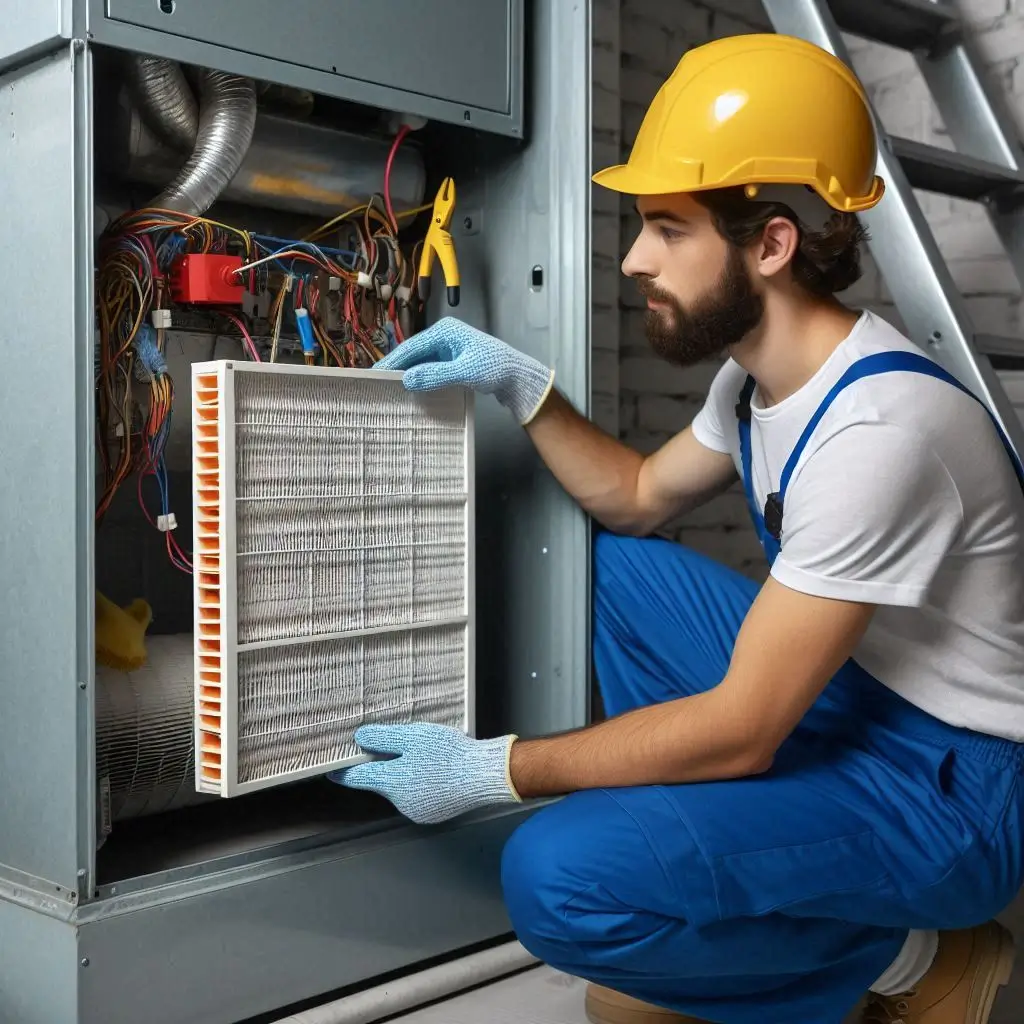
Extending the Lifespan of Your HVAC System
A well-maintained HVAC system has a longer lifespan, which means you’ll get more value from your investment. Heating and air systems are significant investments for homeowners, so extending their lifespan through regular maintenance is a smart financial move.
-
Avoiding Premature System Failure: HVAC systems that are not regularly maintained tend to fail prematurely due to the wear and tear that accumulates over time. Components like the compressor, motor, and thermostat can wear out faster if not regularly serviced. Preventative maintenance ensures that all parts of the system are functioning as they should, preventing unexpected breakdowns and costly replacements.
-
Improving Overall System Performance: Regular maintenance improves the overall performance of your HVAC system. This includes enhanced airflow, better temperature regulation, and improved air quality. When your system operates at its best, it doesn’t have to work as hard to heat or cool your home, which reduces the overall strain on the system and extends its lifespan.
-
Maintaining Warranty Validity: Many HVAC manufacturers require that systems be maintained regularly to keep the warranty valid. Failing to maintain your system could result in the voiding of your warranty, leaving you responsible for costly repairs or replacements. Regular maintenance ensures your warranty remains intact, providing peace of mind and protection for your investment.
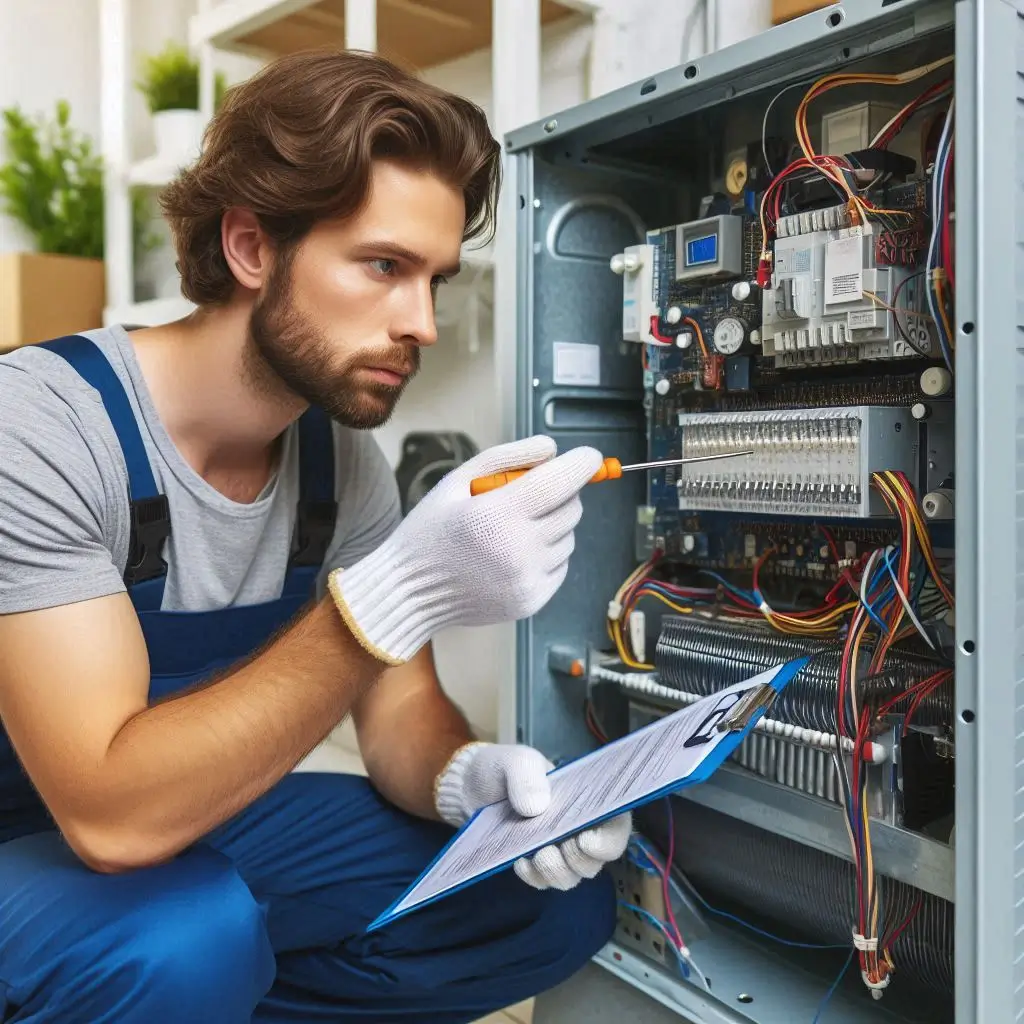
How to Find Affordable Heating and Air Repair Near Me
Finding affordable heating and air repair services is essential for homeowners who want to ensure their HVAC system is functioning well without breaking the bank. However, affordability doesn’t just mean cheap services — it means getting high-quality service at a fair price. By considering pricing transparency, fair estimates, and available discounts, homeowners can secure affordable heating and air repair services without sacrificing quality.
Pricing Transparency and Fair Estimates
When searching for heating and air repair services near you, pricing transparency is one of the most important factors to consider. Avoid companies that provide vague or hidden pricing. Reliable HVAC companies provide clear, upfront estimates for their services, so you know exactly what to expect before any work begins.
-
Get Detailed Estimates: A reputable HVAC service provider should provide a detailed estimate that includes both parts and labor costs. Before any repairs or replacements, make sure the company explains what needs to be done and how much each service will cost. This prevents any unexpected charges later and ensures you’re not caught off guard with surprise fees.
-
Flat-Rate vs. Hourly Pricing: Some companies charge hourly rates, while others offer flat-rate pricing. Flat-rate pricing can be beneficial because you know the cost in advance, and it’s easier to budget for. Hourly rates may vary depending on the time spent, but they can also be reasonable if the company is efficient. When choosing a service provider, ask whether they offer flat-rate or hourly pricing and how they determine the final cost of services.
-
Avoid Hidden Fees: Be cautious of HVAC service providers who add hidden fees, such as emergency service surcharges or diagnostic fees that are not disclosed upfront. A good company will provide an inclusive quote, so you’re not surprised by additional costs later on. Always ask about any potential fees before booking an appointment.
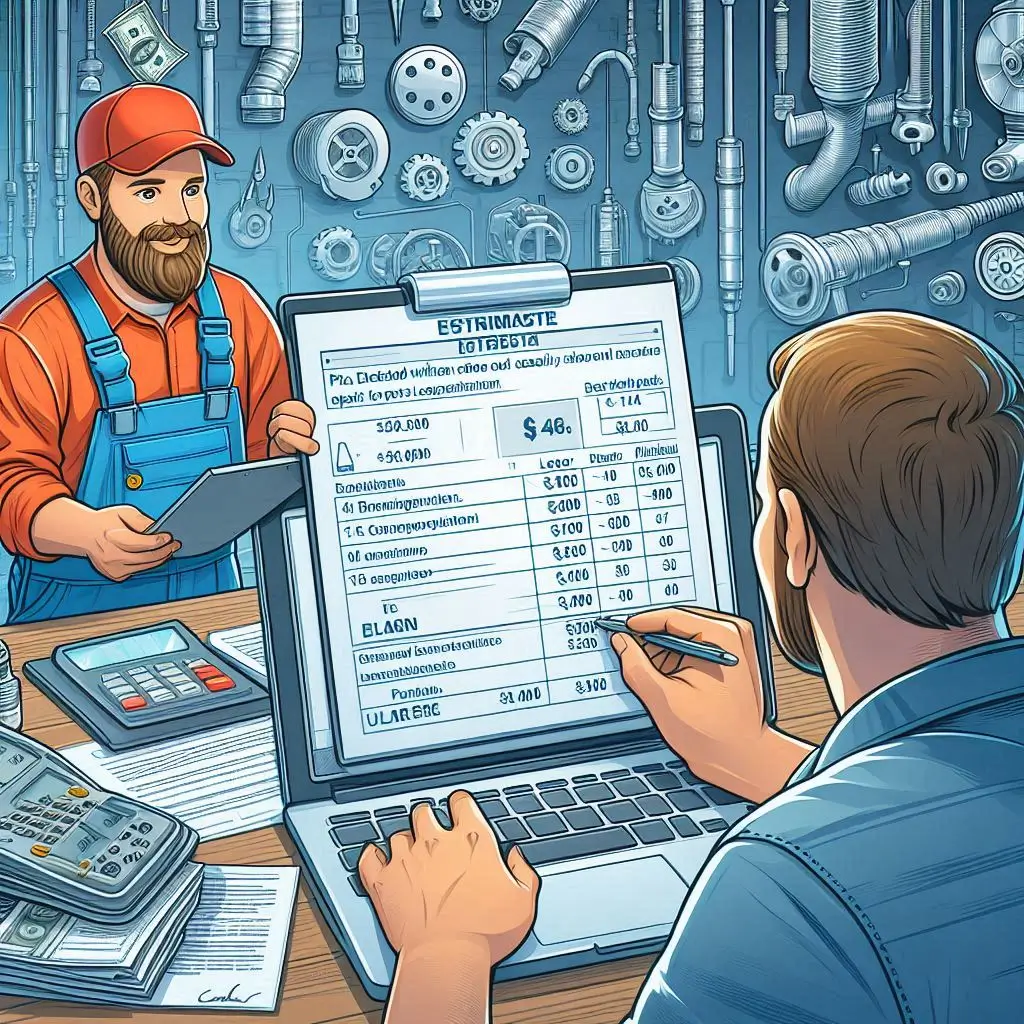
Discounts and Seasonal Offers for Local Residents
Many HVAC companies offer seasonal promotions or discounts that can help local residents save money on heating and air repair services. Take advantage of these offers to get high-quality service at a lower cost.
-
Seasonal Promotions: HVAC companies often offer discounts during the off-season, such as spring or fall, when demand for repairs or installations tends to be lower. These seasonal discounts can include reduced prices on maintenance services or even special offers on new systems or upgrades. Keep an eye out for these promotions, especially before the peak summer or winter months when HVAC systems are in high demand.
-
Local Resident Discounts: Some HVAC companies offer special discounts for residents within their service areas. These discounts may be available for first-time customers, senior citizens, military members, or long-term clients. If you’re a homeowner in the company’s local area, be sure to ask about any special rates that may apply to you.
-
Maintenance Packages with Discounts: Regular HVAC maintenance is essential for keeping your system running smoothly. Many companies offer discounted maintenance packages that include regular inspections, cleaning, and tune-ups for a reduced price. Taking advantage of these packages not only saves money but also helps prevent expensive repairs down the road. If you sign up for a maintenance plan, you may also receive priority service during peak seasons.
-
Referral Discounts: Many HVAC companies offer referral programs that allow you to earn discounts by referring new customers. If you have friends or neighbors in need of heating and air repairs, refer them to your service provider to take advantage of these referral discounts.
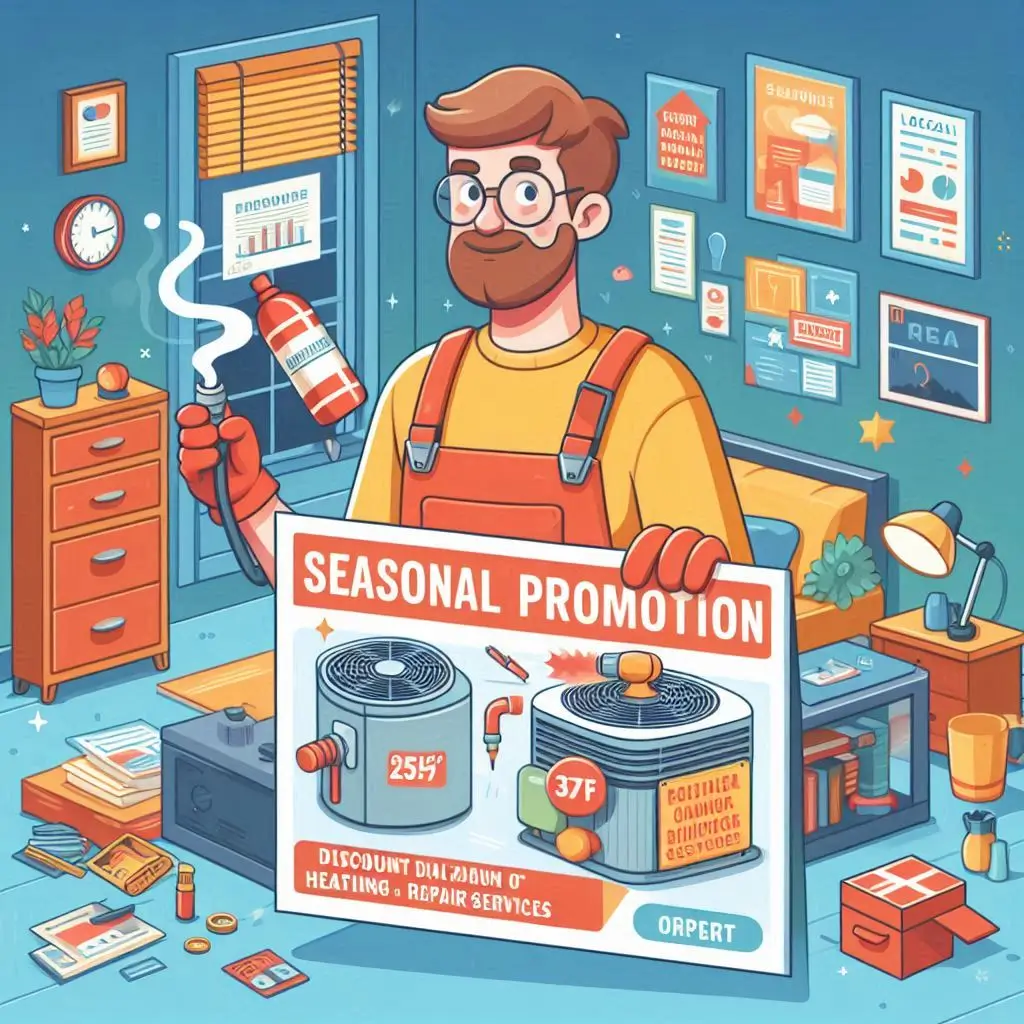
What to Expect During a Heating and Air Repair Service Call
When you schedule a heating and air repair service, it’s important to know what to expect during the service call. Understanding the process and the steps involved will help you prepare for the visit, ensure the repair is handled efficiently, and help you make informed decisions about your HVAC system’s needs. In this section, we’ll break down the typical repair process and explain how professionals diagnose and resolve HVAC issues.
Typical Repair Process and What’s Included
The heating and air repair process typically involves several steps, from the initial inspection to the final resolution of the problem. Here’s what you can expect when an HVAC technician arrives for a repair service call:
-
Initial Inspection and Assessment: Upon arrival, the technician will begin by inspecting the heating and air system. This includes checking the unit’s power supply, components, and the system’s performance. For an air conditioner, they may check the refrigerant levels, while for a heater, they will ensure the pilot light or ignition system is functioning correctly. This step helps the technician identify the root cause of the issue.
-
Diagnosis of the Issue: Once the inspection is complete, the technician will diagnose the issue. This may involve running some basic tests, such as checking for leaks, measuring airflow, or analyzing the thermostat’s performance. The technician will typically use specialized tools like multimeters and pressure gauges to assess electrical and refrigerant levels.
-
Providing a Detailed Estimate: After diagnosing the issue, the technician will provide a clear, upfront estimate of the repair costs. The estimate will outline the parts and labor involved in the repair, along with an explanation of what needs to be done to fix the problem. You’ll have the opportunity to approve the estimate before the technician begins any repairs.
-
Repair and Resolution: Once the estimate is approved, the technician will begin the repair work. Depending on the problem, this may involve replacing faulty components, cleaning the system, or repairing leaks. For example, the technician may replace a worn-out motor, seal a refrigerant leak, or clean a clogged air filter. After completing the repair, they will test the system to ensure it’s functioning properly.
-
Post-Repair Testing and System Check: After the repair is finished, the technician will test the heating and air system to ensure it’s working as expected. This may include running the system for a few cycles, checking the airflow, temperature regulation, and making sure there are no unusual noises or issues. If necessary, they will also perform additional adjustments to optimize the system’s performance.
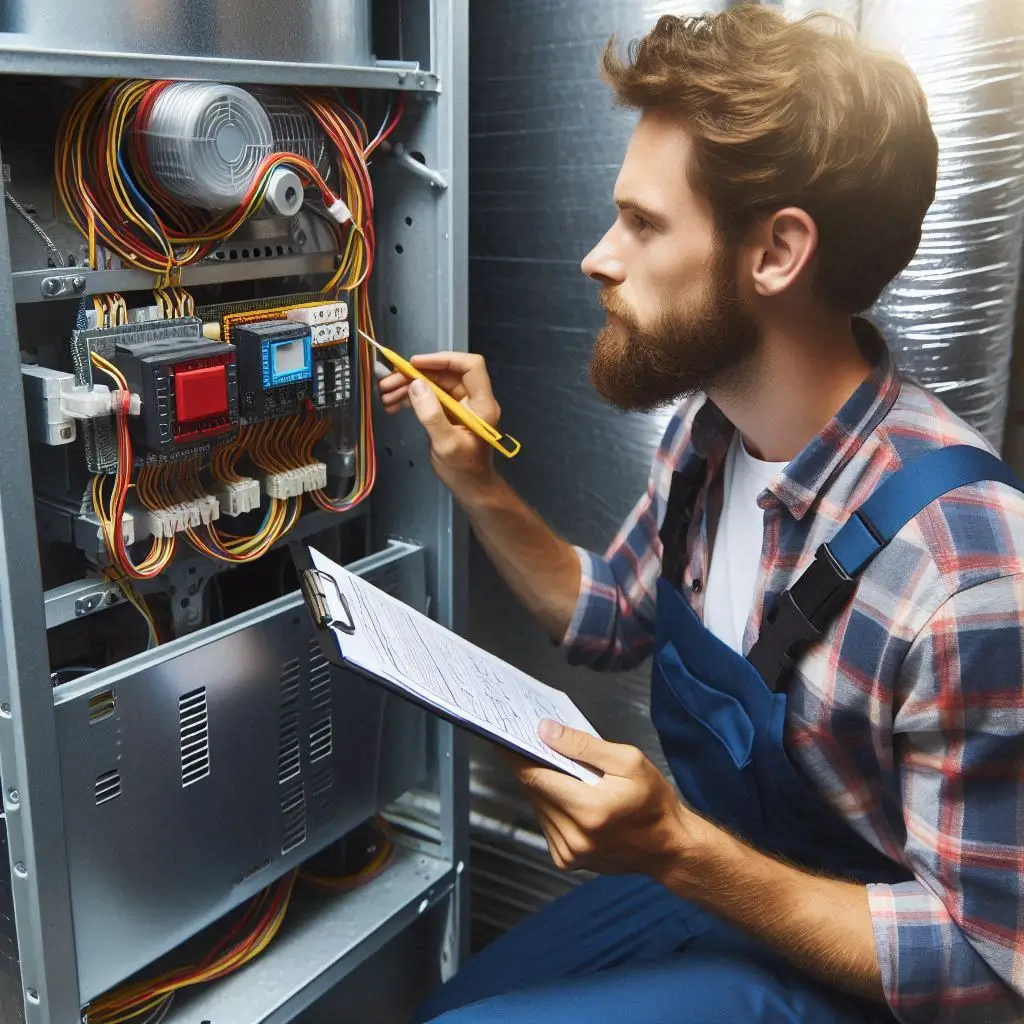
How Professionals Diagnose and Resolve HVAC Issues
Professionals use a systematic approach to diagnose and resolve HVAC issues. Here’s a deeper look into how they identify the problem and ensure the best resolution:
-
Identifying Common Issues: HVAC technicians are trained to identify the most common heating and air system issues. Some of the most common problems include dirty filters, refrigerant leaks, faulty thermostats, clogged condenser coils, or malfunctioning motors. Technicians typically start by eliminating the simplest causes before moving on to more complex diagnoses.
-
Using Diagnostic Tools: HVAC professionals are equipped with advanced diagnostic tools to help them assess your system. Tools like infrared thermometers, manifold gauges, and multimeters allow them to measure temperature, pressure, and electrical readings, which can reveal issues like low refrigerant levels, electrical malfunctions, or airflow problems. These tools help ensure an accurate diagnosis and more efficient repair.
-
Step-by-Step Troubleshooting: Once the technician has identified the symptoms, they will troubleshoot the system step by step. For example, if your air conditioner is not cooling properly, the technician might first check the thermostat settings, inspect the evaporator coil, and verify refrigerant levels. They will continue to work through potential problems until the root cause is determined.
-
Effective Repairs and Replacements: Once the issue is diagnosed, the technician will make the necessary repairs or replacements. If a component is damaged beyond repair, the technician will recommend replacing it with a high-quality part that meets the manufacturer’s specifications. For example, a faulty compressor may need to be replaced, or a malfunctioning thermostat might need to be recalibrated or replaced.
-
Post-Repair Monitoring: After the repair, the technician will monitor the system to ensure it’s operating correctly. If there are no further issues, they’ll provide you with a summary of the work done, along with any tips for maintaining your system to avoid future problems. If you have an ongoing maintenance plan, they may also schedule future service visits.
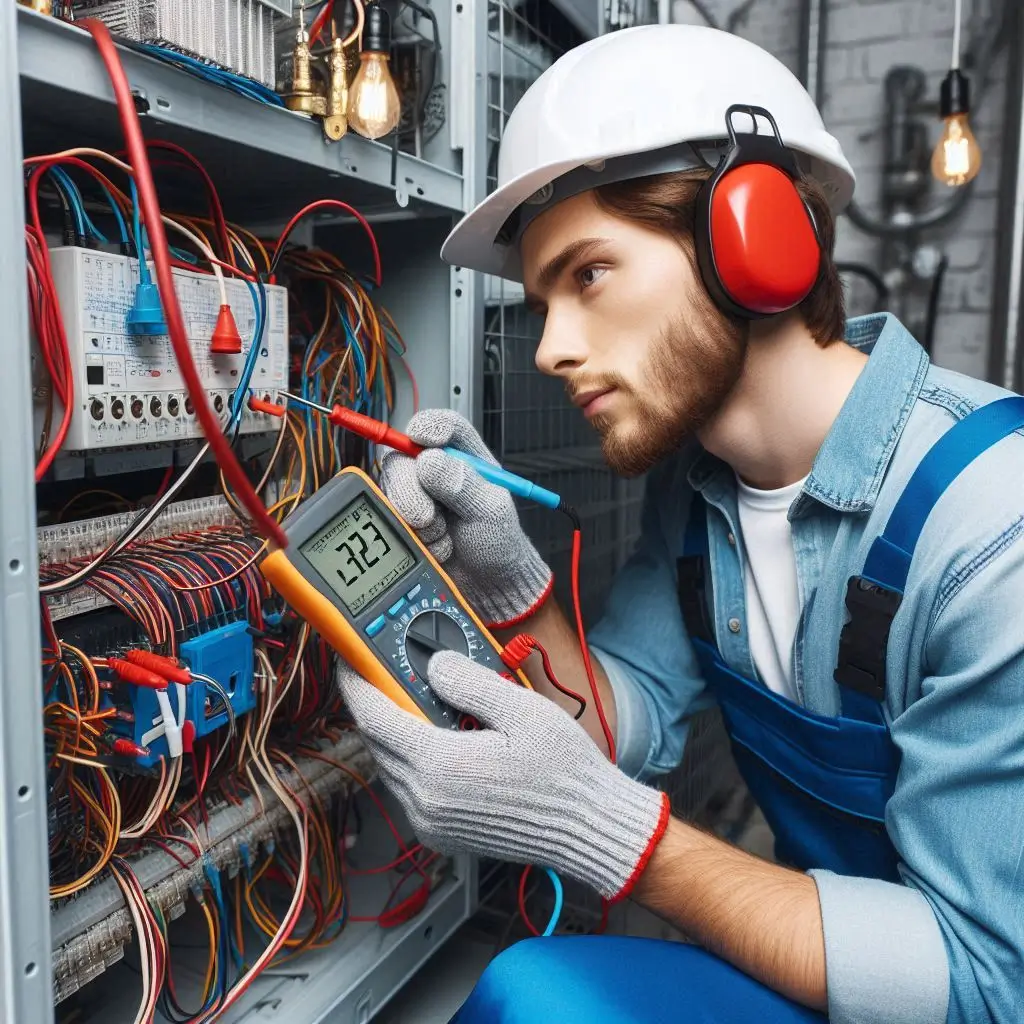
FAQs About Heating and Air Repair Near Me
1. How do I know if my heating or air conditioning system needs repairs?
Your HVAC system may show various signs when it requires repairs. Common signs include:
- Inconsistent Temperature: If your air conditioner or heater is not maintaining a comfortable temperature, it could indicate a malfunction.
- Unusual Noises: Rattling, buzzing, or squealing sounds can be an indication of loose components or other internal issues.
- Increased Energy Bills: A sudden spike in your energy bills, without any changes in usage, can suggest your HVAC system is working inefficiently due to a fault.
- Poor Airflow: Weak airflow or airflow coming from only certain vents suggests a clogged filter, blocked ductwork, or malfunctioning fan.
- Water Leaks: If you notice water pooling around your HVAC system, this could be due to a refrigerant leak or clogged drain lines.
It’s crucial to schedule repairs as soon as you notice any of these issues to avoid further damage and high repair costs.
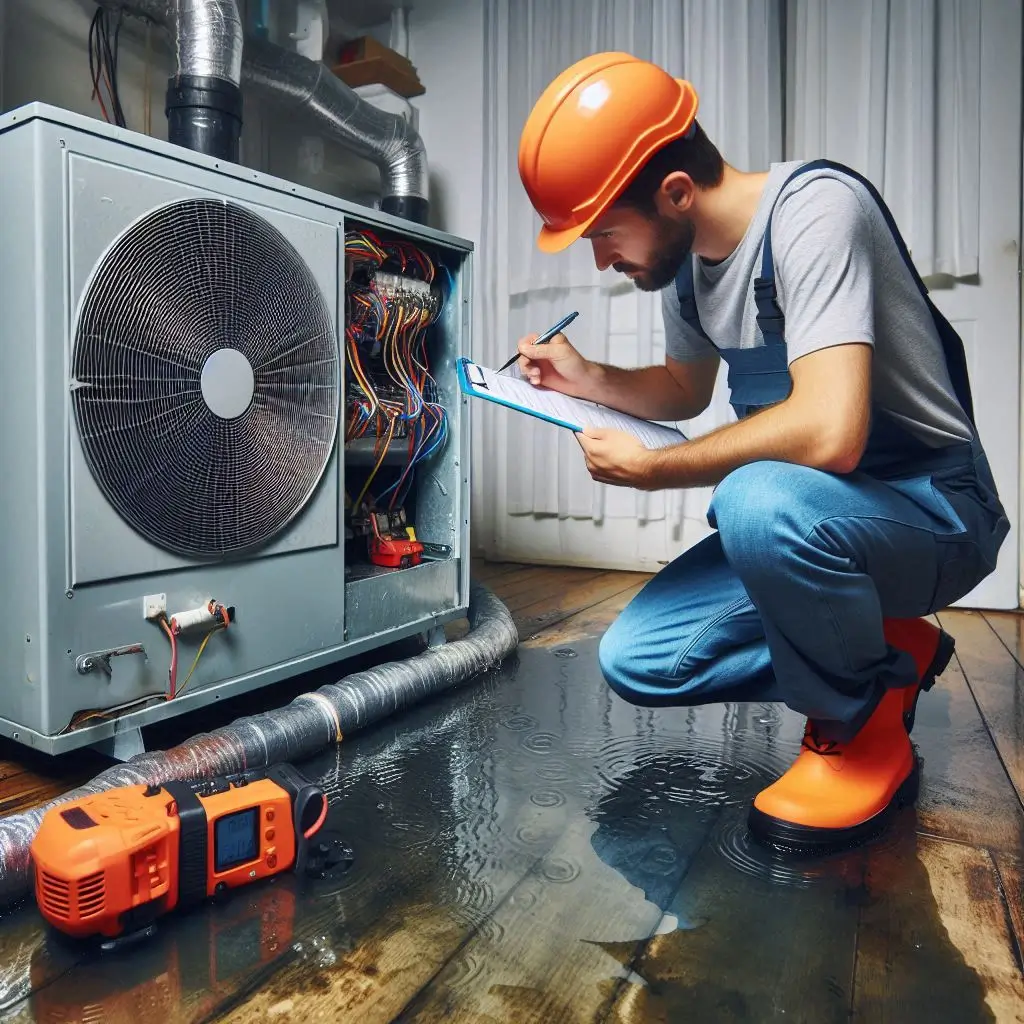
2. How much does heating and air repair cost?
The cost of heating and air repair depends on the nature and severity of the issue, as well as the parts required. On average:
- Minor Repairs: Costs can range from $100 to $400 for simple repairs such as replacing a filter, fixing a thermostat, or repairing a small leak.
- Major Repairs: More complex repairs, like replacing a compressor or repairing refrigerant leaks, can cost between $500 and $2,000, depending on the issue.
- Diagnostic Fees: Most technicians charge a diagnostic fee, which ranges from $50 to $100. This fee may be applied to the total cost of the repair if you choose to proceed with the service.
It’s always a good idea to get an upfront estimate from a local heating and air repair service before agreeing to any work.
3. How long do heating and air repairs take?
The duration of a heating and air repair service depends on the complexity of the issue. Typically, repairs can take:
- Minor Repairs: Simple issues like a clogged filter or minor electrical problem can be resolved within one to two hours.
- Major Repairs: More complex problems, such as replacing a compressor or repairing extensive ductwork, may take several hours or even a day to complete.
- Emergency Repairs: In cases of urgent repairs, such as during extreme weather, HVAC professionals may expedite their services, though the time required for repairs will still vary based on the issue.
Professionals will always inform you about the expected repair time during the initial inspection.
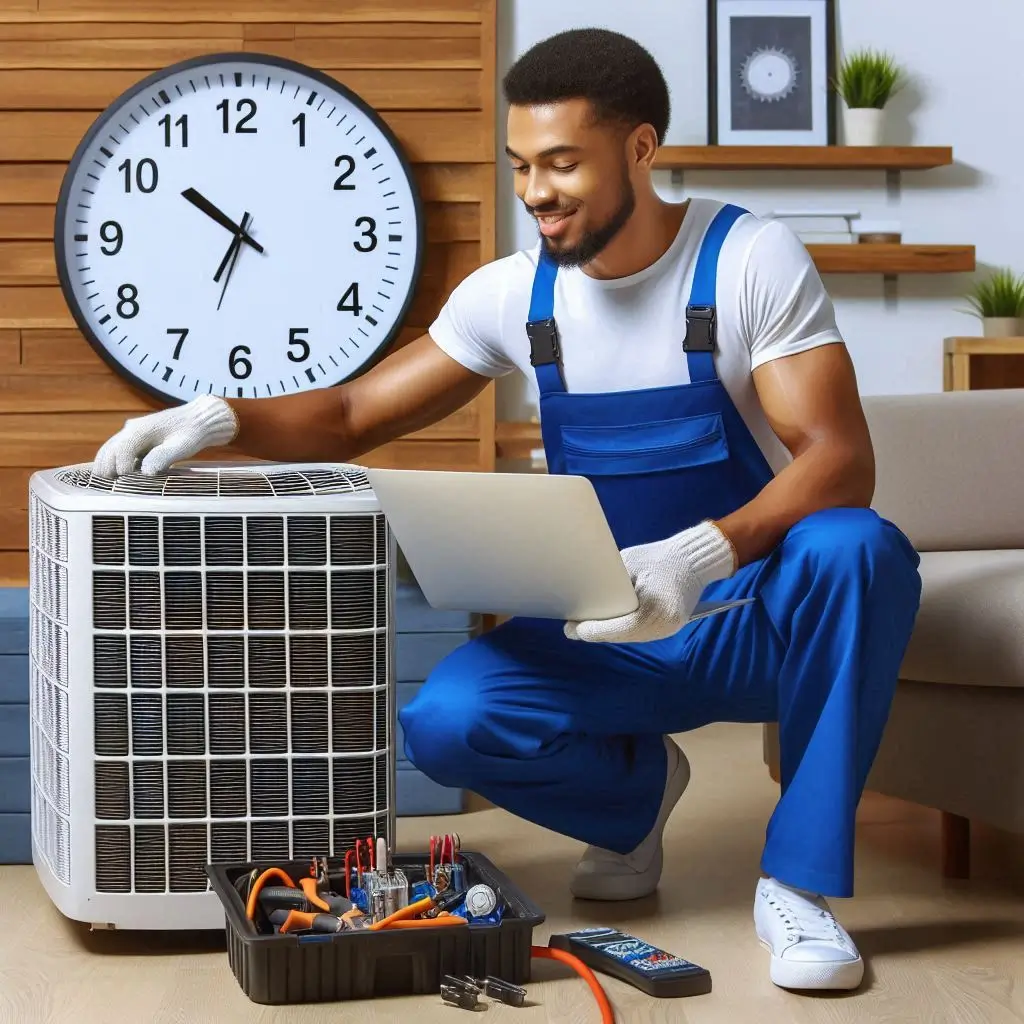
4. Should I repair or replace my HVAC system?
Deciding whether to repair or replace your HVAC system depends on several factors:
- Age of the Unit: If your HVAC system is over 10 years old and requires frequent repairs, replacement might be more cost-effective.
- Cost of Repairs: If the cost of repairs is more than half the price of a new unit, replacement is generally the better option.
- Efficiency Concerns: Newer models are more energy-efficient and can save you money on utility bills in the long run.
- Extent of the Problem: If the repair requires replacing critical components like the compressor or motor, a new system might be a better investment.
Your HVAC technician can help assess whether repair or replacement is the best option based on your system’s condition.
5. How often should I have my heating and air system serviced?
Regular maintenance is essential to extend the lifespan of your HVAC system and avoid costly repairs. Ideally, you should schedule:
- Annual Service for Heating: Have your heating system serviced once a year, ideally before the winter season, to ensure it’s functioning properly.
- Bi-annual Service for Cooling: Schedule an air conditioner tune-up at least once a year, preferably before the summer months, to keep it running efficiently.
- Regular Air Filter Changes: Change the air filter every 1-3 months to prevent dust and debris buildup that can impair the system’s performance.
Routine maintenance can help improve energy efficiency, reduce breakdowns, and extend the lifespan of your HVAC system.
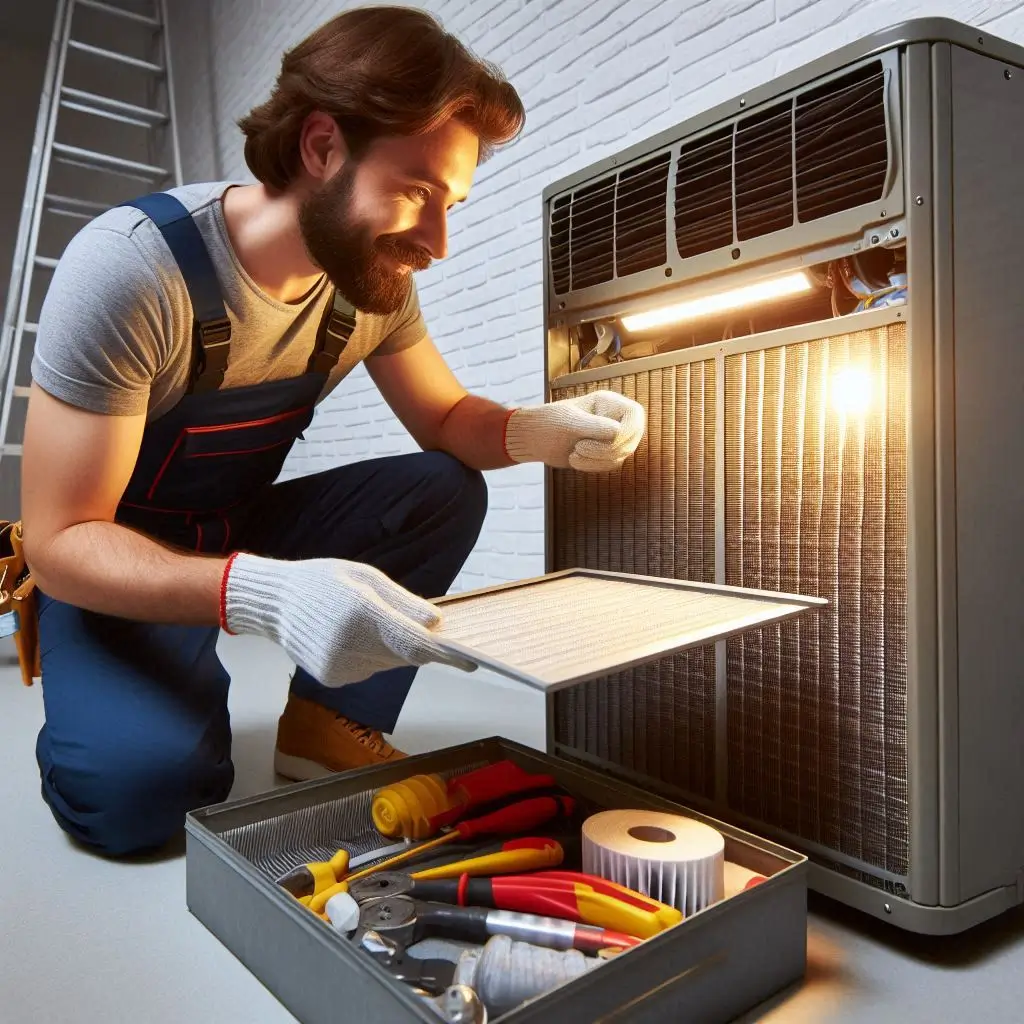
6. Can I perform heating and air repairs myself?
While some minor tasks, like changing filters, can be done by homeowners, most HVAC repairs should be left to professionals. HVAC systems are complex and require specialized training and tools to diagnose and repair effectively. Attempting repairs on your own can result in:
- Worsening the Problem: Incorrect repairs may cause further damage, leading to higher repair costs.
- Voiding Warranties: DIY repairs can void manufacturer warranties, which may cover future repair costs.
- Safety Risks: Handling electrical components or refrigerant can be dangerous if not done properly.
It’s always best to call a certified technician for any heating and air repairs.
Conclusion:
In conclusion, choosing a reliable “heating and air repair near me” service is essential for maintaining a comfortable and efficient home environment. Whether you’re dealing with common HVAC issues or looking for regular maintenance, it’s crucial to hire local professionals who understand the unique demands of your area. From ensuring your system runs smoothly to preventing costly repairs, regular service and timely repairs are key to extending the lifespan of your HVAC unit. By considering factors such as licensing, emergency availability, and transparent pricing, you can make an informed decision that meets your needs and budget. Don’t wait for a breakdown – schedule your heating and air repair today to keep your home comfortable all year round.

